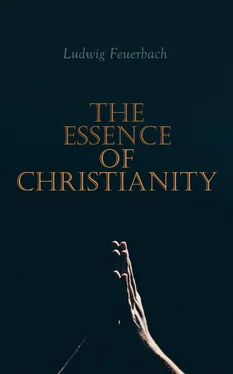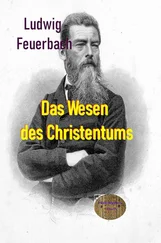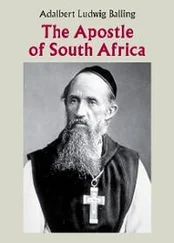I must further mention that the circulation which my work has had amongst the public at large was neither desired nor expected by me. It is true that I have always taken as the standard of the mode of teaching and writing, not the abstract, particular, professional philosopher, but universal man, that I have regarded man as the criterion of truth, and not this or that founder of a system, and have from the first placed the highest excellence of the philosopher in this, that he abstains, both as a man and as an author, from the ostentation of philosophy, i.e. , that he is a philosopher only in reality, not formally, that he is a quiet philosopher, not a loud and still less a brawling one. Hence, in all my works, as well as in the present one, I have made the utmost clearness, simplicity, and definiteness a law to myself, so that they may be understood, at least in the main, by every cultivated and thinking man. But notwithstanding this, my work can be appreciated and fully understood only by the scholar, that is to say, by the scholar who loves truth, who is capable of forming a judgment, who is above the notions and prejudices of the learned and unlearned vulgar; for although a thoroughly independent production, it has yet its necessary logical basis in history. I very frequently refer to this or that historical phenomenon without expressly designating it, thinking this superfluous; and such references can be understood by the scholar alone. Thus, for example, in the very first chapter, where I develop the necessary consequences of the standpoint of Feeling, I allude to Jacobi and Schleiermacher; in the second chapter I allude chiefly to Kantism, Scepticism, Theism, Materialism and Pantheism; in the chapter on the “Standpoint of Religion,” where I discuss the contradictions between the religious or theological and the physical or natural-philosophical view of Nature, I refer to philosophy in the age of orthodoxy, and especially to the philosophy of Descartes and Leibnitz, in which this contradiction presents itself in a peculiarly characteristic manner. The reader, therefore, who is unacquainted with the historical facts and ideas presupposed in my work, will fail to perceive on what my arguments and ideas hinge; no wonder if my positions often appear to him baseless, however firm the footing on which they stand. It is true that the subject of my work is of universal human interest; moreover, its fundamental ideas, though not in the form in which they are here expressed, or in which they could be expressed under existing circumstances, will one day become the common property of mankind: for nothing is opposed to them in the present day but empty, powerless illusions and prejudices in contradiction with the true nature of man. But in considering this subject in the first instance, I was under the necessity of treating it as a matter of science, of philosophy; and in rectifying the aberrations of Religion, Theology, and Speculation, I was naturally obliged to use their expressions, and even to appear to speculate, or—which is the same thing—to turn theologian myself, while I nevertheless only analyse speculation, i.e. , reduce theology to anthropology. My work, as I said before, contains, and applies in the concrete, the principle of a new philosophy suited—not to the schools, but—to man. Yes, it contains that principle, but only by evolving it out of the very core of religion; hence, be it said in passing, the new philosophy can no longer, like the old Catholic and modern Protestant scholasticism, fall into the temptation to prove its agreement with religion by its agreement with Christian dogmas; on the contrary, being evolved from the nature of religion, it has in itself the true essence of religion,—is, in its very quality as a philosophy, a religion also. But a work which considers ideas in their genesis and explains and demonstrates them in strict sequence, is, by the very form which this purpose imposes upon it, unsuited to popular reading.
Lastly, as a supplement to this work with regard to many apparently unvindicated positions, I refer to my articles in the Deutsches Jahrbuch , January and February 1842, to my critiques and Charakteristiken des modernen After-christenthums , in previous numbers of the same periodical, and to my earlier works, especially the following:— P. Bayle. Ein Beitrag zur Geschichte der Philosophie und Menschheit , Ausbach, 1838, and Philosophie und Christenthum , Mannheim, 1839. In these works I have sketched, with a few sharp touches, the historical solution of Christianity, and have shown that Christianity has in fact long vanished, not only from the reason but from the life of mankind, that it is nothing more than a fixed idea , in flagrant contradiction with our fire and life assurance companies, our railroads and steam-carriages, our picture and sculpture galleries, our military and industrial schools, our theatres and scientific museums.
LUDWIG FEUERBACH.
Bruckberg, Feb. 14, 1843 .
Table of Contents
§ 1. The Essential Nature of Man.
Religion has its basis in the essential difference between man and the brute—the brutes have no religion. It is true that the old uncritical writers on natural history attributed to the elephant, among other laudable qualities, the virtue of religiousness; but the religion of elephants belongs to the realm of fable. Cuvier, one of the greatest authorities on the animal kingdom, assigns, on the strength of his personal observations, no higher grade of intelligence to the elephant than to the dog.
But what is this essential difference between man and the brute? The most simple, general, and also the most popular answer to this question is—consciousness:—but consciousness in the strict sense; for the consciousness implied in the feeling of self as an individual, in discrimination by the senses, in the perception and even judgment of outward things according to definite sensible signs, cannot be denied to the brutes. Consciousness in the strictest sense is present only in a being to whom his species, his essential nature, is an object of thought. The brute is indeed conscious of himself as an individual—and he has accordingly the feeling of self as the common centre of successive sensations—but not as a species: hence, he is without that consciousness which in its nature, as in its name, is akin to science. Where there is this higher consciousness there is a capability of science. Science is the cognisance of species. In practical life we have to do with individuals; in science, with species. But only a being to whom his own species, his own nature, is an object of thought, can make the essential nature of other things or beings an object of thought.
Hence the brute has only a simple, man a twofold life: in the brute, the inner life is one with the outer; man has both an inner and an outer life. The inner life of man is the life which has relation to his species, to his general, as distinguished from his individual, nature. Man thinks—that is, he converses with himself. The brute can exercise no function which has relation to its species without another individual external to itself; but man can perform the functions of thought and speech, which strictly imply such a relation, apart from another individual. Man is himself at once I and thou; he can put himself in the place of another, for this reason, that to him his species, his essential nature, and not merely his individuality, is an object of thought.
Religion being identical with the distinctive characteristic of man, is then identical with self-consciousness—with the consciousness which man has of his nature. But religion, expressed generally, is consciousness of the infinite; thus it is and can be nothing else than the consciousness which man has of his own—not finite and limited, but infinite nature. A really finite being has not even the faintest adumbration, still less consciousness, of an infinite being, for the limit of the nature is also the limit of the consciousness. The consciousness of the caterpillar, whose life is confined to a particular species of plant, does not extend itself beyond this narrow domain. It does, indeed, discriminate between this plant and other plants, but more it knows not. A consciousness so limited, but on account of that very limitation so infallible, we do not call consciousness, but instinct. Consciousness, in the strict or proper sense, is identical with consciousness of the infinite; a limited consciousness is no consciousness; consciousness is essentially infinite in its nature. 1The consciousness of the infinite is nothing else than the consciousness of the infinity of the consciousness; or, in the consciousness of the infinite, the conscious subject has for his object the infinity of his own nature.
Читать дальше












